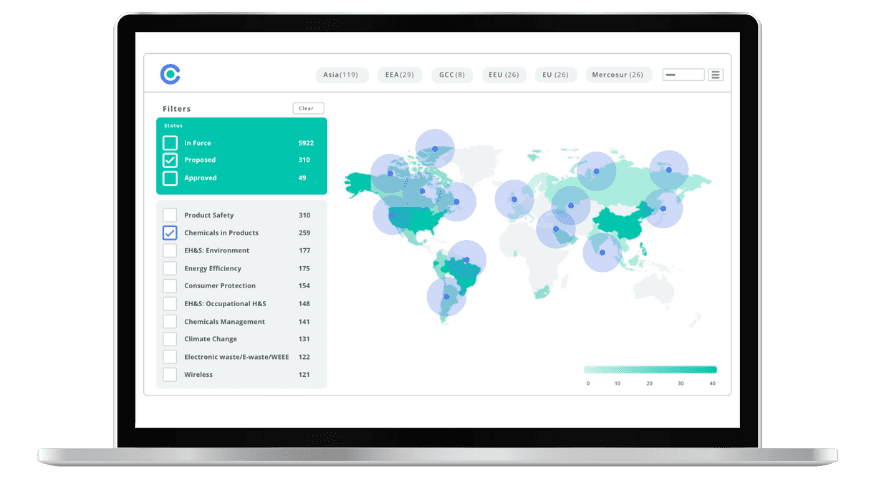
Proposal for a New Fashion Sustainability Accountability Act in Washington State

This blog was originally posted on 7th January, 2025. Further regulatory developments may have occurred after publication. To keep up-to-date with the latest compliance news, sign up to our newsletter.
AUTHORED BY HANNAH JANKNECHT, REGULATORY COMPLIANCE SPECIALIST, COMPLIANCE & RISKS
House Bill 1107: Washington Fashion Sustainability Accountability Act
In an effort to promote environmental and social responsibility within the fashion industry, Washington State Representative Scarlett Mena introduced House Bill 1107 on 20 December 2024.
House Bill 1107, also known as the ‘Washington Fashion Sustainability Accountability Act’, is a reintroduction of House Bill 2068, which was already introduced during the 2024 Regular Session, but failed to progress beyond a discussion in the Committee on Environment & Energy in January 2024.
Aim of the New Bill
The primary aim of the Bill is to minimize the social and environmental impact of clothing and footwear, addressing issues such as excessive water usage in textile production, the use of harmful chemicals, industry waste, and the limited recyclability and reusability of fabrics. To address these concerns, the Bill proposes transparency requirements for fashion producers, which includes anyone selling, offering, or distributing apparel or footwear in Washington State. This applies to manufacturers, distributors, and first sellers alike.
Transparency Requirements
Starting January 1, 2027, it shall be mandatory to annually disclose the following information to the department of ecology:
- A notice disclosing products containing high priority chemicals;
- Descriptions and definitions of any marketing terms used by the producer, including “sustainable,” “green,” “low impact,” or “environmentally friendly”;
- A description of how the producer deals with unwanted excess products that are not sold to consumers, and the volume of disposed products;
- A description of the producer’s current activities, initiatives or targets related to reducing the producer’s environmental impacts.
Fashion producers with an annual worldwide gross income exceeding $100,000,000 are furthermore obliged to disclose to the department:
- Information on the environmental due diligence policies, processes and outcomes that the fashion producer has established;
- Information on the working conditions of the fashion producer and its direct suppliers.
Producers that do not comply with the transparency obligations might face civil fines of up to $5,000 for each violation, and fines of up to $10,000 for repeat offences. The fines will be paid into the newly created community environmental and public health improvement account, which aims to support overburdened communities and vulnerable populations.
Government Support for Policy Development
In order to support the development of environmental and social policies for producers, the department will conduct an evaluation of policy options for producers until 15 October 2026. The assessment will address policy design considerations and best practices for extended producer requirements applicable to fashion products and labeling of products with environmental attributes.
Similar US Bills
The introduction of House Bill 1107 comes amidst several other US proposals that seek to enhance social and environmental responsibility. Both Massachusetts (House Bill 420, 2023) and New York State (Assembly Bill 4333C, 2024) have seen proposals for Sustainable Fashion Acts, aiming to implement supply chain due diligence and reporting requirements for retailers and manufacturers. With the legislative sessions in these states now concluded, these bills will, however, need to be reintroduced in order to continue advancing.
Stay Ahead Of Regulatory Changes Like the Washington Fashion Sustainability Accountability Act
Want to stay ahead of regulatory developments like the proposed Washington Fashion Sustainability Accountability Act?
Accelerate your ability to achieve, maintain & expand market access for all products in global markets with C2P – Your key to unlocking market access, trusted by more than 300 of the world’s leading brands.
C2P is an enterprise SaaS platform providing everything you need in one place to achieve your business objectives by proving compliance in over 195 countries.
C2P is purpose-built to be tailored to your specific needs with comprehensive capabilities that enable enterprise-wide management of regulations, standards, requirements and evidence.
Add-on packages help accelerate market access through use-case-specific solutions, global regulatory content, a global team of subject matter experts and professional services.
- Accelerate time-to-market for products
- Reduce non-compliance risks that impact your ability to meet business goals and cause reputational damage
- Enable business continuity by digitizing your compliance process and building corporate memory
- Improve efficiency and enable your team to focus on business critical initiatives rather than manual tasks
- Save time with access to Compliance & Risks’ extensive Knowledge Partner network

Supply Chain Due Diligence: An Overview of Key Developments in the EU in 2024 and Areas to Watch in 2025
Get an overview of key regulatory developments in supply chain due diligence in the EU in 2024, and what is coming down the line in 2025.


